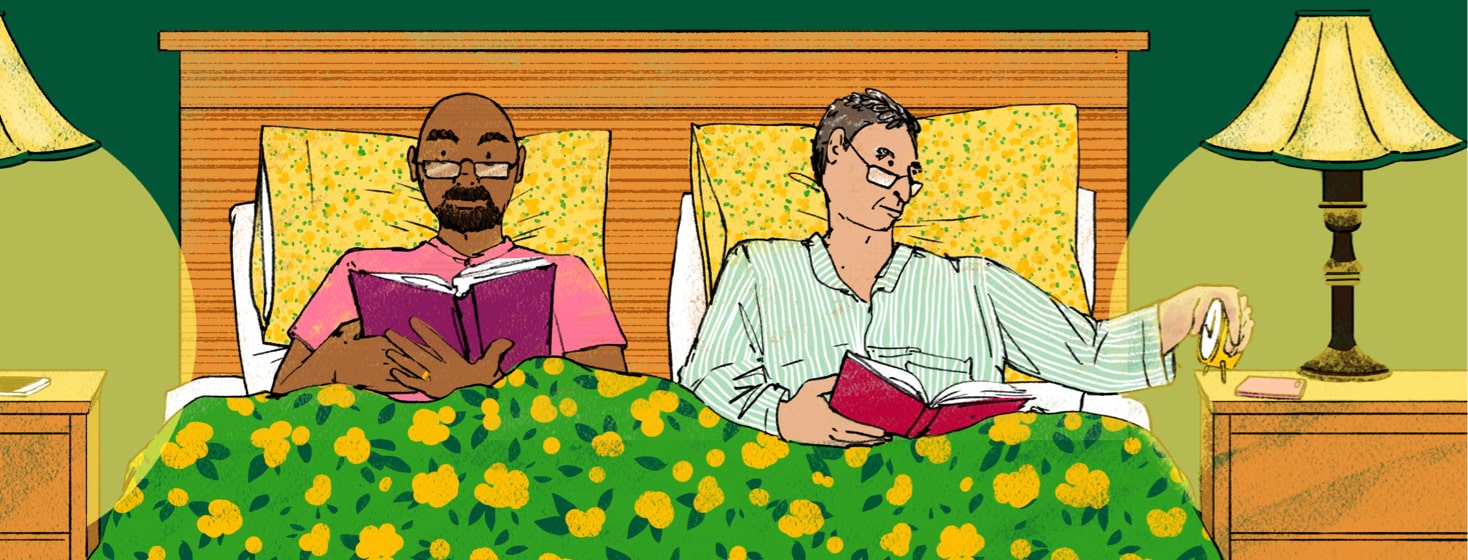Sleep Hygiene and Macular Degeneration
Many of us enjoy scrolling through social media or binging our favorite Netflix series in bed before falling asleep. Research says that’s probably not a good idea if we want optimal sleep and rest. Here’s why...
Whole body health
Keeping our whole bodies healthy is no longer just what we eat and how much we exercise. Good sleep habits and positive mental health have been added to the list, and for good reason! All of these things, together, allow our bodies (and eyes) and minds to be at their best. However, without one piece of the whole-body health puzzle, the others aren’t as effective - including our eyes.
Sleep hygiene
This article will discuss good ‘sleep hygiene’. I don’t know about you, but I am simply not a good sleeper. I am really good at eating well and exercising regularly. I even focus a lot of time and energy on positive mental and emotional health. But, I have always struggled to sleep well (or even relax). I know that sleep is important to my overall health and well-being, so I’ve done a little bit of research on how to get better at it.
What is sleep hygiene?
Sleep hygiene is the newest hype, adding it to the list of things to do to be as healthy as possible. It is the newest term for ‘good sleep habits’. Hygiene is no longer just keeping our bodies clean! It’s taking care of ALL of ourselves - body, mind, and soul. Good sleep hygiene improves our sleep health.
Practices for good sleep hygiene
According to the CDC, doing these things can help ensure a better night’s sleep:
- Consistent sleep schedules. That means going to bed and waking up at the same time every day.
- Use your bed for its original purposes only, meaning don’t eat, scroll, or watch TV in bed. This trains your body to think ‘it’s time to sleep’ when you lay down.
- Get comfortable. Make sure your bedroom just how YOU like it in regards to lighting, sound, and temperature.
- Turn off electronic devices a few hours before bedtime. The lighting from TVs, computers, and smartphones trick our brains into thinking it’s time to be awake.
- Prepare your physical body for sleep. Avoid large meals and alcohol before bedtime and avoid caffeine after lunchtime. It may help to shower or get clean before going to bed.
- Exercise. Being physically active during the day can help you fall asleep more easily at night.
Do what works for you
The above list are just recommendations for better sleep. We each enjoy falling asleep to different temperatures and lighting in the room. Some of us like absolute quiet when snoozing, while others appreciate some white noise. I’m a firm believer in doing what works best for our unique selves.
For example, some of us like to exercise in the morning, while others exercise before bed. The CDC suggests exercising, but the 'when' is up to each of us. I know that I would be wide awake after an evening exercise so that would make it harder for me to sleep. Good overall health requires us to know our bodies well.
Why does it matter?
Not getting enough sleep affects the rest of our health. Without proper rest, our emotions and mental health may struggle. We may crave foods that aren’t healthy or lack the umph to get up and prepare a healthy meal. I mean, grabbing fast food is much easier, right? And, without enough sleep, we may not have enough energy to exercise properly… or even at all.
Not to mention, our body processes (digesting, nutrient absorption... things like that) don’t function properly with tired bodies. And, we can get sick more often or stay sick longer.
When all else fails, get back to the basics
Like any other lifestyle change, getting into these new sleep habits may take some time and effort. If you’re like me, it’s easier said than done to put the phone down before bed. That’s okay! These habits improve with time and consistency. And, when all else fails... I make sure my sheets are fresh and clean, I meditate, picture myself on a secluded beach, or even count sheep.
Sweet dreams,
Andrea Junge

Join the conversation